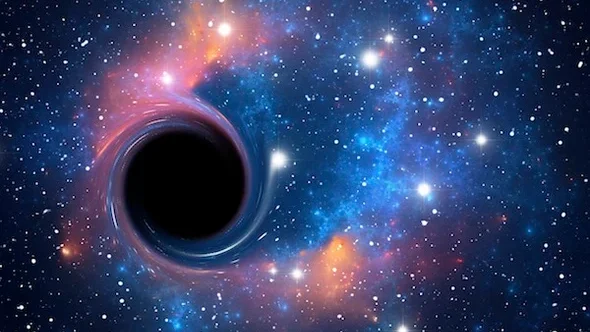A black hole is a region of space where the gravitational pull is so strong that nothing, not even light, can escape. Black holes are formed when massive stars run out of fuel and collapse under the force of their own gravity, creating an incredibly dense and compact object.
The region around a black hole where the gravity is so strong that nothing can escape is called the event horizon. Once an object crosses the event horizon, it is considered to be lost forever to the black hole’s gravitational pull.
Black holes come in different sizes, ranging from stellar black holes, which are only a few times more massive than the sun, to supermassive black holes, which are found at the center of most galaxies and can be billions of times more massive than the sun.
Despite the fact that black holes emit no light and are therefore invisible, they can be detected indirectly through their effect on nearby objects. For example, gas and dust falling into a black hole can emit radiation that can be detected by telescopes, or the gravitational pull of a black hole can cause nearby stars to orbit in a characteristic way.
Black holes remain one of the most intriguing and mysterious objects in the universe, and the study of black holes is an active area of research in astronomy and astrophysics.




hii